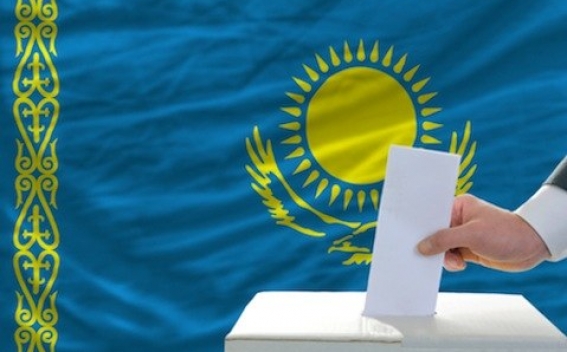Three days are left until the key event of Kazakhstan’s political life over the last four years. More than 9 million citizens are registered to vote in the presidential election on April 26.
 This will be the sixth time the people of Kazakhstan will have gone to the polls to choose their leader. For a region that had no tradition of electoral democracy prior to independence from the Soviet Union, this is a remarkable experience.
This will be the sixth time the people of Kazakhstan will have gone to the polls to choose their leader. For a region that had no tradition of electoral democracy prior to independence from the Soviet Union, this is a remarkable experience.
That a democratic culture is continuing to take shape in Kazakhstan is demonstrated by the acceptance by international institutions of the government’s invitation to send observer missions to the poll.
According to final data from the Central Electoral Commissionas of April 20, a total of 858 international observers are registered. Representing the Commonwealth of Independent States (CIS) are 410, the Organisation for Security and Cooperation in Europe (OSCE) has delegated 293, , 26 represent the Council of Cooperation of Turkic-Speaking States and its Parliamentary Assembly, 10 are from the Shanghai Cooperation Organisation (SCO) and three have been sent by the Organisation of Islamic Cooperation (OIC). Another 116 observers are expected to arrive from 37 states from across the world.
However, the main force in ensuring that the election is run cleanly will be domestic observers, who will come largely from the candidates’ staff and a number of public associations. Most likely, the largest group will be the National Social Commission on Controlling the Election, known by their Russian acronym, ROKKV. The ROKKV was launched by a group of prominent public figures, scholars, artists, journalists and others, and has promised to delegate up to 10,000 observers on election day to almost 10,000 election stations.
The election is generating remarkable interest among international media, too. The press service of Kazakhstan’s Foreign Ministry reported that 168 foreign journalists representing media outlets from 37 states have been accredited to cover the election. This attention demonstrates the nation’s growing relevance for the external world, and that the decision makers and general public in major countries are eager to better understand the trajectory of Kazakhstan’s development.
In these final days, the three candidates are expected to hold their rallies and address the widest possible audience through paid airtime on public television. In their last attempts to impress voters, each of the candidates will need to make his message as clear and convincing as possible. That is what democracy must be largely about – persuasion – and the election represents arguably the best instrument for doing so. Even when the outcome seems predetermined.
Obviously, all surveys and expert opinions predict a clear, massive victory for incumbent President Nursultan Nazarbayev. Nevertheless, this electoral campaign has already served to benefit Kazakh society in that it has provided an opportunity for issues citizens care about, including social justice, environmentalism and labour rights, which Tursun Syzdykov and Abelgazi Kussainov highlighted through their own campaigns, to become part of the national conversation.
The voting on April 26 must help find more answers to the questions that worry the nation of Kazakhstan, starting with by whom and with what programme will we be led through the time of turmoil around us.

